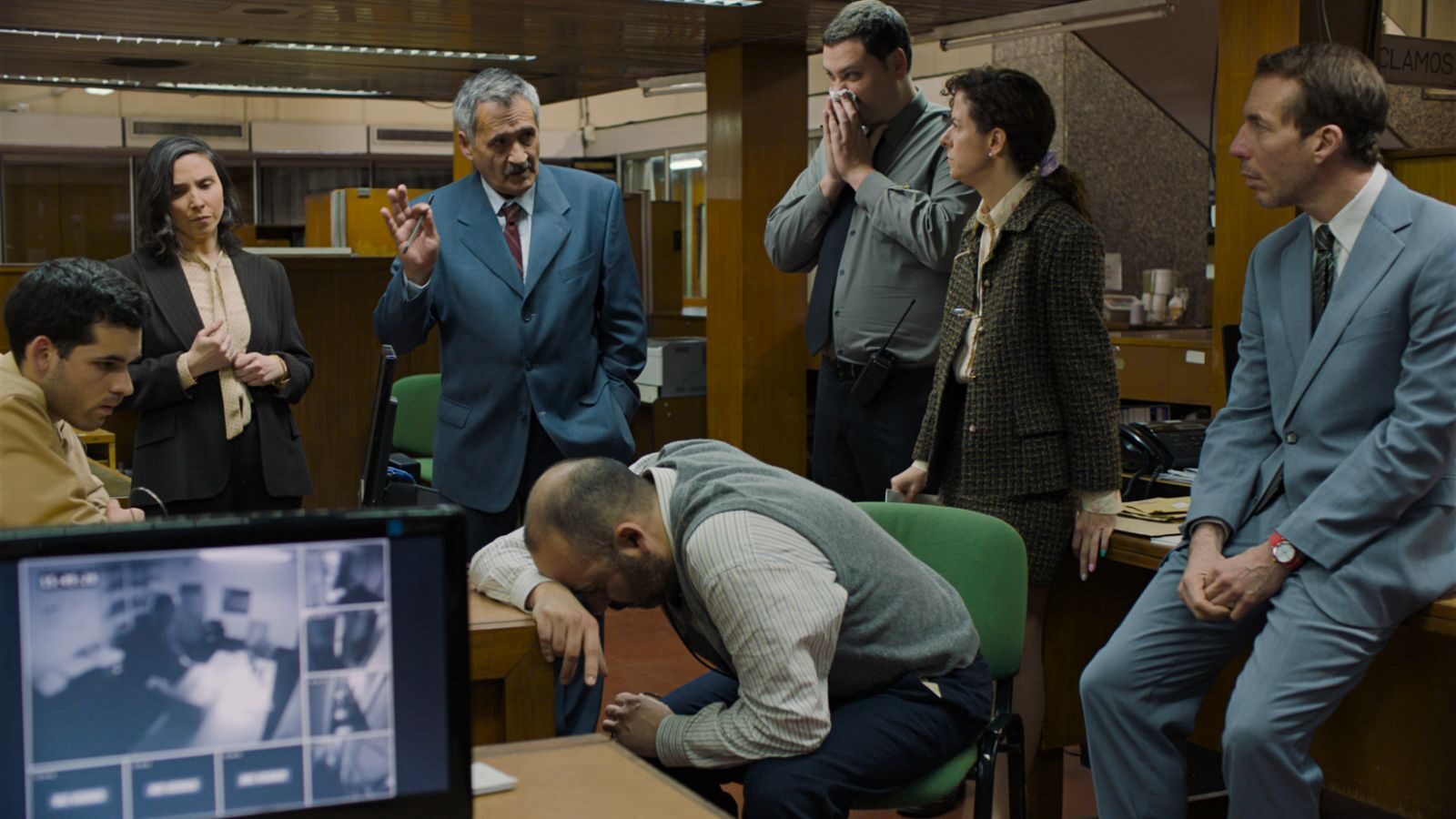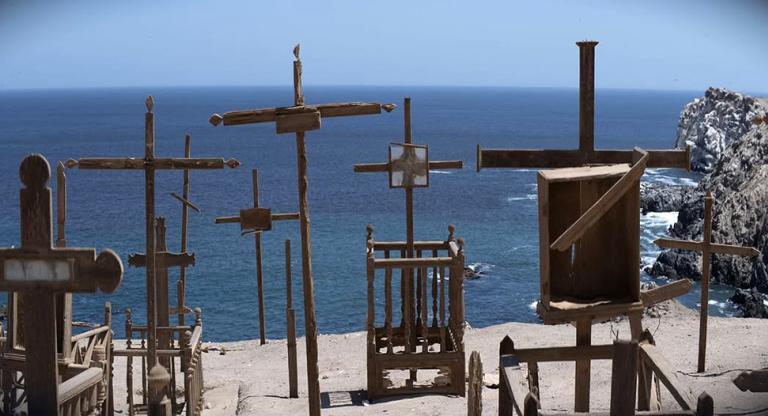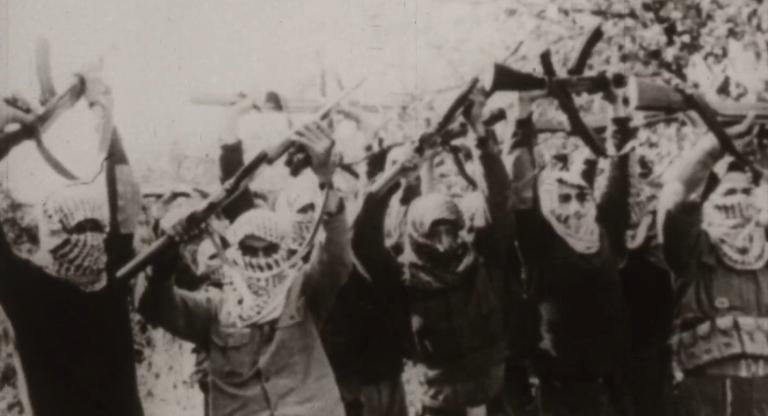Morán and Román meet to discuss the details of a bank heist which, in fact, has already been committed. Around them, solitaries stand at the distinctive stainless steel bars of a Buenos Aires pizzeria, eating heaving slices and drinking beer. The architecture is vaguely reminiscent of a bank teller's counter, the site of Román's daily labors for the past 17 years. Morán, the bank's treasurer, ran the numbers on his desktop calculator that morning: "3 ½ years in jail or 20 in the bank." He's stolen $650,000, the relatively modest equivalent of his and Román's combined salaries if they continued working until retirement age. He will turn himself in, and Román will hold onto the money until he's served his time; when he's sprung they'll split it, then live as they please.
Rodrigo Moreno's The Delinquents (2023) proceeds to chart those years in limbo and all of their trials, doldrums, digressions, ellipses, reversals, romances, lassitudes and last cigarettes. Over three hours, its buoyancy is continuously replenished by an improbable combination of existential malaise and divine whimsy. The anagrammatic naming convention continues throughout the film as Morán and Román meet Norma, Morna, and Ramon in Alpa Corral, a bucolic municipality in the foothills of Córdoba, where they are shooting a film about gardens that promises never to be completed and otherwise living as blissed-out bohemians. With Román, they invent endings to a mysterious fragment of rhyme he remembers from childhood and play a language game with city names. (Moreno joins in: several of these characters are pointedly from places another has heard of but never been.) Even the insurance company investigation of the crime yields an interrogation of syntax.
On the morning of the theft, the bank's machinery had already ground to a halt as it was confronted by the strange case of two clients with identical signatures. "Some people have the same voice," a colleague reasons. "Some people have the same life." In prison, Morán finds he has the same boss as in the bank. The capo of the cell block, to whom he must pay protection, is played by the same actor, Germán de Silva, who as branch manager renders hilarious the contemplative swiveling of a chair. The film contains two discourses on freedom, one among white-collar workers on a smoke break and one among convicts in the prison yard, both delivered by de Silva. The lines in these scenes are transparently ventriloquies of Moreno: commonplace complaints about contemporary society that are made to seem novel within the film’s bold scope.
Among the first images of the film is the suit Morán must put on to go to work, laid out on a chair as though the man within has already disappeared. In The Custodian (2006), Moreno starts in much the same way as he dramatizes the life of a bodyguard who works for a state minister. The Delinquents continues his interest in self-possessed people who are nonetheless rented out by the hour and the day to their insipid economic superiors. Both films are animated by a moment when the mild-mannered subject commits a singularly outrageous act, betraying forever their former life of decency and respectability. The Custodian deploys this moment at the very end, where it lands somewhat dully, while The Delinquents front-loads the device, resulting in a deliriously gratifying propulsion.
Moreno lands on an ecstatic faith in the power of great art to deliver us from life’s myriad captivities, calling upon music and poetry, in particular, to give meaning to the minutes that become years. The sense of intertextuality is zealous and unpretentious. And yet this movie also pays close attention to another sort of artifice: the elisions, anachronisms, and outright falsehoods that, having told once, we begin ourselves to believe. The characters' selective memory is at work on the film as the actors age inside it, a special effect that can be attributed at least in part to a stop-start production schedule spanning the pandemic years. Reclaiming his few personal effects from the prison's property officer, Morán looks as though he is making a large withdrawal from a bank. He inks a thumbprint on the necessary documents, a signature difficult to duplicate.
The Delinquents screens October 30–November 5 at the Roxie.
Previously:
The Delinquents screens tonight, tomorrow, and the next day, October 11–13, at the New York Film Festival, its U.S. premiere. Tonight’s and tomorrow’s screenings will be followed by conversations with director Rodrigo Moreno. A theatrical run opens October 18 at Film at Lincoln Center.


